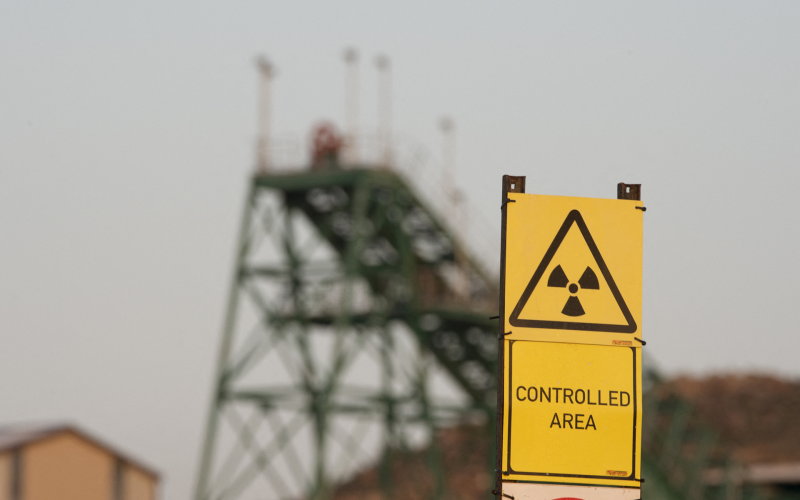Recommendations
- One should not confound the assertion that ‘peace is good for the private sector’ with one that ‘peacebuilding is good for a particular business now operating in fragile and conflict-affected states (FCAS)’.
- Policy efforts to accelerate GDP growth, increase tax revenues, or expand jobs that do not acknowledge and address conflict dynamics will increase fragility. Initiatives to shape the investment and business climate and promote private sector development must be conflict sensitive if they are to promote good governance and peaceful development.
- The past years have seen significant innovation in financing fragile state investment. Greater innovation may also be needed in creating new vehicles for patient, inclusive and less profit- driven private sector development in conflict-prone environments.
- Corporate accountability is still central to positive change in FCAS. The current policy push towards ‘de-risking’ FCAS investment is misguided, decoupling corporate risk from socio-political risks to local populations and conflict risks in broader society.
Executive summary
European policy regarding the private sector must therefore become more conflict sensitive, shaping the environment in which private sector development unfolds for better rather than for worse.
Introduction
The European Commission asserts that the private sector remains ‘a critical partner for achieving the objectives’ of the Joint Africa–EU Strategy. [1] These include the improvement of social and environmental standards and human rights conditions, as well as governance, under the Raw Materials Initiative. [2] The EU also encourages private sector engagement in extractives governance through the Extractives Industry Transparency Initiative, the Kimberley Process, and the Organisation for Economic Co-operation and Development’s Guidelines for Multinational Enterprises, among other policy initiatives.
Yet most businesses in FCAS see themselves as ‘systems takers’, constrained by the political economy of conflict and their own role in the system from engaging in transformative action. More worrisome still, many private sector actors unwilling to become entangled in conflict dynamics will have chosen not to invest, will have discontinued operations, or will not have been granted a formal licence to operate. Others will have been weeded out by politically sanctioned, unfair competition. Since in almost all cases the FCAS government is a conflict actor, the private sector that emerges, survives and in some cases thrives is the product of a conflict-rife political economy.
Efforts to accelerate economic growth and promote private sector development without attending to these realities have in many places increased fragility and led to overt violence. As part of a larger study of the private sector as a peacebuilding actor, [3] this policy briefing argues for greater attention to these dynamics by ‘systems shapers’: those who play a role in promoting, financing, regulating and holding accountable private sector actors in FCAS.
Disincentives to corporate peacebuilding
The assertion that peace is good for business is generally premised on the costs and lost opportunities of conflict.[4] Additional factors, however, must be considered to understand why most private sector actors stand aside from, or even oppose, peacebuilding and good governance efforts.
The risks of peacebuilding
FCAS governments are almost always conflict actors that exercise inordinate control, formal and informal, over economic access and opportunity. One senior manager consulted in an FCAS environment reported that he met a government minister to raise a human rights issue related to the resettlement of communities for the expansion of a fruit plantation. His intent, he said, was to raise the issue quietly and constructively. The next day, inspectors appeared at his factory and shut it down owing to alleged health and safety violations. Such reprisals are commonplace.
Given these real costs of engaging for positive change, companies disinclined to take business risks for ‘political’ activity develop various strategies – from investment portfolios that contain the risk of any one fragile context, to political risk insurance and international arbitration agreements with fragile state governments – that lessen the downside risks of conflict.
Businesses also extract a risk premium in the form of the high returns that these environments provide. As reported by the Multilateral Investment Guarantee Agency of the World Bank Group in 2010, ‘the potential for high returns over a short payback period is likely to convince some investors to operate in a high-risk environment’; across sectors, company size and geographical origin, sufficiently enticing business opportunities will outweigh risks, even in an environment without peace. [5]
The costs of peace
More profound for the incumbent private sector in an FCAS than the risks of peacebuilding may be the costs of peace. While ‘peace’ has no universal definition, it to some degree must include a foundation of greater fairness and justice. Yet even those businesses not deeply entrenched with the political elite may benefit from an unjust system.
One senior-level commentator noted that Sierra Leone, for example, has [6]
no unique resources and no internal market. We have a cost of transportation twice the regional average and an untrained workforce. The only reasonable assumption is that a company invests here at least in part to take advantage of the situation.
Whatever else peaceful development will mean if it comes to Sierra Leone and similarly situated countries, it will almost certainly include more robust and better enforced environmental, social and labour regulations. It will create broader economic opportunities and therefore subject incumbents to greater competition. And, in the view of many, it will entail a fairer division of the profits of business between labour and capital. Businesses profiting from the economic status quo – and particularly those more deeply complicit in its creation and maintenance – are unlikely to be enthusiastic actors for peace and good governance.
Divergent agendas
Businesses cannot be neutral in discussions of peace; they are stakeholders in the future configuration of society. And there appears to be a preference among businesses – whether realistic or not – for stability without fundamental social transformation.
In South Africa, for example, the majority of the business community moved from active support of the apartheid regime, to late and reluctant support for an inevitable transition, to almost immediate disengagement from the politics of transformation after ‘economic growth and wealth creation’ had been embedded in national policy and property rights had been protected in the new constitution. Theuns Eloff, who led the Consultative Business Movement in its support for the democratic transition, explained that ‘[b]usiness’s hopes for the new South Africa had been fulfilled to a larger extent’. [7] This was despite systemic crises of basic education, HIV/AIDS, housing, land reform, jobs with dignity, and so on that still preoccupy its former civil society partners in the peace committees.
The default position of companies may be towards accommodating the government that provides their formal licence to operate and, through regulatory and other structures that shape the business environment, determines the boundaries of their profitability. This keeps business aligned with government even when it brings it into opposition with other stakeholders and peacebuilding interests. Private sector interests in its own stability – which in most cases implies the stability of a government in power even if it remains a conflict actor – mean that business may part ways with other peacebuilding actors over questions of social justice, human rights, democratisation, reconciliation, or reparation for past abuses.
Implications for policy
It is clear that a growing private sector is not, in and of itself, peace positive. Thus it cannot be assumed to be a natural ally in good governance and peaceful development. [8] Implications for ‘systems shapers’ – those who play a role in promoting, financing, regulating and holding accountable private sector actors in FCAS – are explored below.
Realism about the political economy of conflict is a starting point
It is important not to confound the assertion that ‘peace is good for business’ (ie, will lead to a growing private sector) with one that ‘peacebuilding is good for a particular business now operating in a fragile and conflict-affected country’. The barriers to entry for business and peace are high, and the barriers to exit from transformational efforts low.
The more exuberant claims of a private sector’s being at the forefront of advancing Sustainable Development Goal (SDG) 16 in FCAS therefore need to be approached with caution. If frequently repeated assertions that ‘peace is good for business’ and that there is a ‘business case for peace’ were broadly true, one might reasonably expect to find concerted efforts by private sector actors to reduce violence, manage conflict, and lay the foundations for peaceful development in the fragile and conflict-affected societies of which they are part. Yet in most fragile contexts the private sector tends to be a vector for persistent and growing instability.
Private sector policy must itself become conflict sensitive
The dynamics of political fragmentation, mistrust, exclusion and grievance that make a context fragile in the first place also undermine policies meant to promote good governance and peaceful development. [9] For example:
- Plantation agriculture, mining, oil and gas, and large-scale infrastructure projects that are the mainstay of fragile state investment touch on issues of land ownership, environmental degradation, lack of local voice, company and government impunity and other issues that are often key drivers of fragile state conflict and violence.
- Resilience is undermined as the macro-economic context and business environment increasingly favour large international players in the formal economy focused on exports over smallholders in the informal economy focused on local consumption.
- Tax revenues may disappear to the capital, fuelling protests by communities struggling with the negative impacts of in-migration and unregulated environmental degradation without adequate resources to manage them.
Policy efforts to accelerate top-line gross domestic product (GDP) growth, tax revenues, or even job expansion without attending to such conflict dynamics – whether inter-ethnic, centre-periphery, elite-excluded or rural-urban – will predictably increase fragility. Policies and initiatives to promote economic growth, shape the investment and business climate and promote private sector development therefore must be conflict sensitive if they are to promote good governance and peaceful development.
The choice of partners matters
The business case for private sector engagement for good governance and peaceful development, as such, is weak. Systems shapers may therefore have to look beyond incumbents or those pursuing FCAS investment through a predominantly financial lens. The past years have seen significant innovation in the finance of fragile state investment; greater innovation may also be called for in the creation of new vehicles for patient, inclusive and less profit-driven private sector development in conflict-prone environments.
Corporate accountability is still central
The 2008 statement by John Ruggie, Special Representative of the Secretary-General on human rights and transnational corporations, remains true today: ‘Governance gaps provide the permissive conditions for wrongful acts by companies of all kinds without adequate sanctioning or reparation. How to narrow and ultimately bridge the gaps … is our fundamental challenge.’ [10]
There are cumulative impacts on conflict when the entire weight of the private sector is perceived by many as fundamentally skewed in favour of foreign investors and elites and away from the interests of the informal sector, communities, labour and the environment. Additionally, ethical actors are crowded out by unethical businesses not held accountable in either FCAS or home country forums.
The current policy push towards ‘de-risking’ FCAS investment may in particular be misguided, decoupling corporate risk from socio-political risks to local populations and conflict risks in the broader society – rather than using, as in other domains, risk as a disciplining mechanism for corporate behaviour. [11]
Conclusion
The European Commission asserts that ‘active participation of the private sector can contribute to the achievement of sustainable development’,12 including SDG 16 to promote peaceful and inclusive societies for sustainable development, providing access to justice for all, and building effective, accountable and inclusive institutions at all levels.[13]
For this to be true in FCAS, however, both foreign companies and international policy must be attentive to – and accountable for – direct and indirect negative impacts on conflict dynamics. Until this happens, private sector development is likely to undermine rather than support good governance and peaceful development.
Footnotes
1 EU, ‘The Africa–EU Partnership: 2 Unions, 1 Vision’. Luxembourg: EU, 2014, p. 18.
2 European Commission, Communication from the Commission to the European Parliament and the Council: The Raw Materials Initiative – Meeting Our Critical Needs for Growth and Jobs in Europe, COM (2008) 699 final, 4 November 2008, https://eur-lex. europa.eu/LexUriServ/LexUriServ.do?uri=COM:2008:0699:FIN:EN:PDF, accessed 14 May 2019.
3 Miller B et al., A Seat at the Table: Capacities and Limitations of Private Sector Peacebuilding, ACDS (Africa Centre for Dispute Settlement), CDA (CDA Collaborative Learning) & PRIO (Peace Research Institute Oslo), 2019, https://www.usb.ac.za/wp- content/ uploads/2018/02/Brian-Ganson-A-Seat-at-the-Table_FINAL-010819-Web.pdf, accessed 14 May 2019. All anecdotes, illustrations and quotations in this briefing are taken from the project cases and related consultations, unless otherwise noted.
4 See Nelson J, Business of Peace: The Private Sector as a Partner in Conflict Prevention and Resolution. London: International Alert, 2000.
5 MIGA (Multilateral Investment Guarantee Agency), World Investment and Political Risk 2010. Washington DC: MIGA, 2010.
6 Drawn from the research for Wennmann A, Ganson B & J Luiz, Operational Experience of Business Environment Reform Programming in Fragile and Conflict Affected States. London: DIFD (UK Department for International Development), 2017.
7 Eloff T, ‘The business community after apartheid and beyond: An analysis of business’s engagement in the second decade of democracy’, in Shapiro I & K Tebeau (eds), After Apartheid: Reinventing South Africa? Richmond: University of Virginia Press, 2011, p. 117.
8 See, for example, Ganson B, ‘Business and peace: A need for new questions and systems perspectives’, in Miklian J (ed.), Business and Peacebuilding: Beyond the Sustainable Development Goals. London: Routledge, 2019 (forthcoming); Miklian J, ‘Mapping business–peace interactions: Opportunities and recommendations’, Business, Peace and Sustainable Development, 10, 1, 2017, pp. 3–27; Ganson B & A Wennmann, Business and Conflict in Fragile States: The Case for Pragmatic Solutions. London: International Institute for Strategic Studies, 2016.
9 Wennmann A & B Ganson, ‘Business and institutional reform in hybrid political orders’, in Ansorg N & S Kurtenbach (eds), Institutional Reforms and Peacebuilding. London: Routledge, 2017.
10 OHCHR (Office of the UN High Commissioner for Human Rights), Protect, Respect and Remedy: A Framework for Business and Human Rights, A/HRC/8/5, 7 April 2008.
11 See Ganson B, ‘The risky business of de-risking in fragile and conflict affected states’, CDA, 16 December 2017, https://www.cdacollaborative.org/blog/risky-business-de-risking-fragile-conflict-affected-states/, accessed 14 May 2019.
12 European Commission, A Stronger Role of the Private Sector in Achieving Inclusive and Sustainable Growth in Developing Countries, COM (2014) 263 final, 13 May 2014, https://ec.europa.eu/europeaid/european-commission-communication- com2014263- stronger-role-private-sector-achieving-inclusive-and_en, accessed 14 May 2019.
13 European Commission, Next Steps for a Sustainable European Future: European Action for Sustainability, COM (2016) 739 final, 22 November 2016, p. 3, https://ec.europa.eu/europeaid/sites/devco/files/communication-next-steps-sustainable- europe-20161122_ en.pdf, accessed 14 May 2019.
Acknowledgment
This policy briefing is largely drawn from an article in the South African Journal of International Affairs entitled ‘Business (Not) for Peace: Incentives and disincentives for corporate engagement on good governance and peaceful development in the African context’. The policy briefing and journal article are outputs of the project ‘The European Union’s Normative Role in African Extractives Governance’, which is co-funded by the Erasmus+ Programme of the EU. Funding for the research came in part from the Carnegie Corporation of New York and the Norwegian Ministry of Foreign Affairs.








